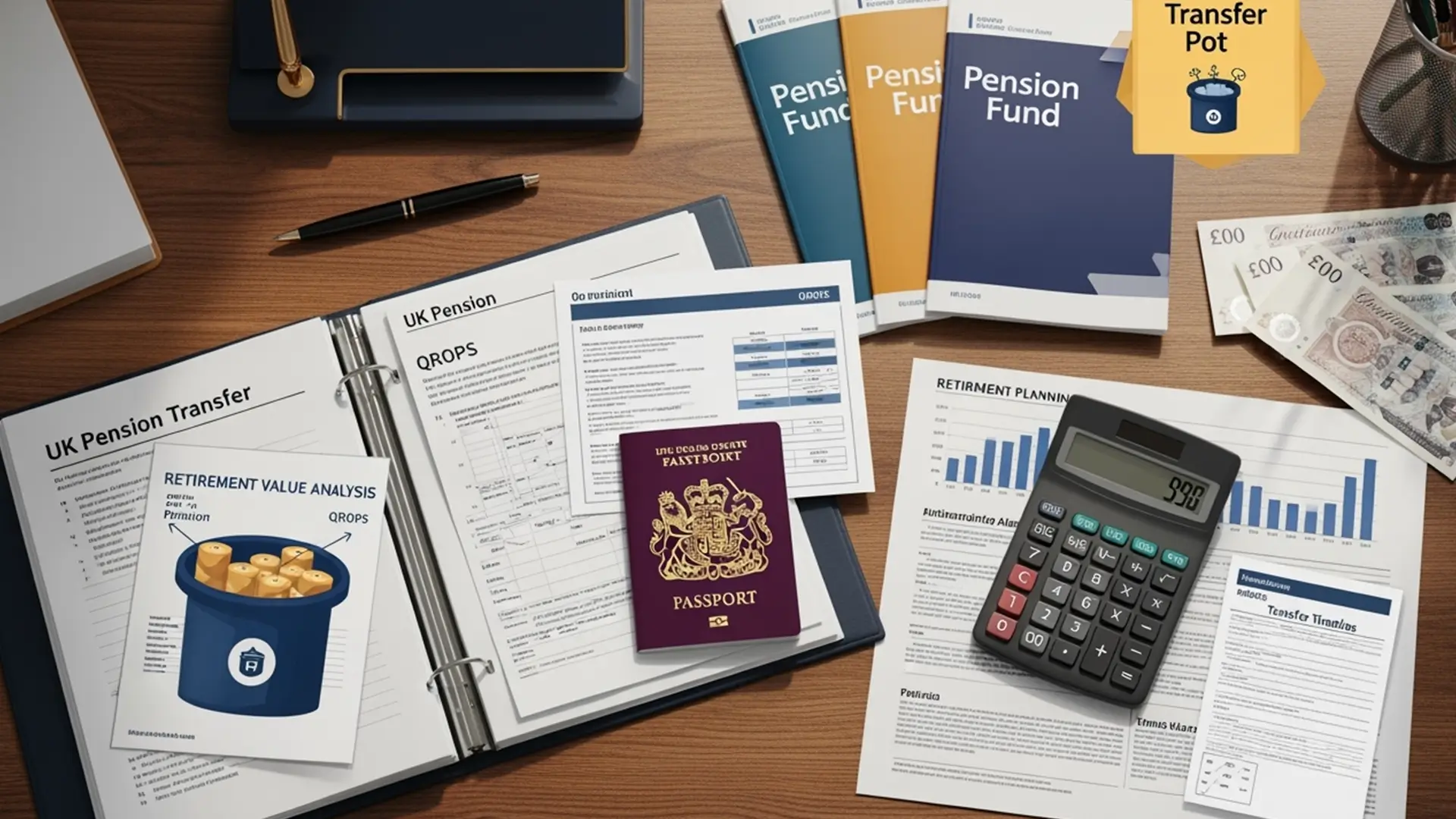7 Common Misconceptions About Residency by Investment Programmes
20th December 2024

Residency by Investment (RBI) programmes are becoming increasingly popular among individuals looking for new opportunities, whether for personal growth, business expansion, or a better quality of life.
Despite their growing appeal, many misconceptions persist, often deterring potential applicants from exploring these programmes.
Let’s dive into the seven most common myths and set the record straight!
1. RBI Programmes Are Exclusively for the Ultra-Wealthy
When you hear about residency by investment, you might imagine it’s only for billionaires buying luxury properties or funding massive projects.
While some programmes do have substantial investment thresholds, there are plenty of options that cater to individuals with more modest budgets.
For instance, certain European and Caribbean nations offer residency programmes with entry points that are surprisingly affordable.
These options make RBI programmes accessible to entrepreneurs, professionals, and even retirees looking to relocate. It’s not just a club for the ultra-rich — there’s something for everyone.
2. RBI Programmes Are a Way to Evade Taxes
One of the biggest misconceptions is that these programmes provide a loophole for avoiding taxes.
The reality couldn’t be further from the truth. RBI programmes operate within the legal frameworks of both the applicant’s home country and the host nation.
While some countries offer attractive tax incentives, these are designed to encourage economic participation, not tax evasion. Applicants are still expected to comply with tax laws and often must prove the legitimacy of their financial contributions.
3. RBI Programmes Are Unethical or Illegal
There’s a lingering belief that RBI programmes operate in murky legal territory.
However, these programmes are carefully regulated and recognised by governments worldwide. They’re not only legitimate but also play a significant role in boosting local economies.
For example, funds raised through RBI programmes in the Caribbean have been used to rebuild infrastructure and support disaster relief efforts.
Stringent due diligence processes ensure that applicants’ funds are ethically sourced and that they meet the required standards.
4. No Physical Presence Is Required
While some RBI programmes allow you to obtain residency with little to no physical presence in the host country, this isn’t always the case.
Many programmes require applicants to spend a certain amount of time in the country to maintain their residency status.
It’s crucial to understand the specific requirements of each programme. For example, Portugal’s Golden Visa programme has minimal stay requirements, while others may require you to reside for several months or more each year.
5. Investment Guarantees Residency
Just because you’ve made the required investment doesn’t mean you’re automatically approved.
Residency applications are subject to rigorous background checks and compliance reviews. Governments want to ensure applicants meet all legal, financial, and character requirements before granting residency.
It’s important to work with experienced professionals who can guide you through the process, helping you understand the criteria and navigate the paperwork.
6. RBI Programmes Are a Quick Way to Skip Immigration Queues
While RBI programmes can be faster than traditional immigration routes, they’re not instantaneous. Processing times vary by country and can range from a few months to over a year.
The application process involves detailed due diligence, which takes time. This ensures that only credible and eligible individuals are granted residency. Patience and proper planning are essential.
7. RBI Programmes Have Minimal Economic Impact on Host Countries
Some critics argue that these programmes don’t significantly benefit host countries.
However, the evidence suggests otherwise. RBI programmes often play a vital role in driving economic growth by attracting foreign investment, creating jobs, and funding critical projects.
In many Caribbean nations, for example, funds from RBI programmes have been used to develop infrastructure, build schools, and support disaster recovery efforts. In Europe, these investments often boost real estate markets and promote innovation in local industries.
Conclusion
Residency by Investment programmes offer a wealth of opportunities for individuals and families seeking a fresh start or expanded global access.
By dispelling these common misconceptions, it’s clear that these programmes are accessible, legitimate, and beneficial to both applicants and host countries.
If you’re considering applying for an RBI programme, it’s crucial to have accurate information and expert guidance. Don’t let myths hold you back from exploring the possibilities.
Contact a trusted financial service provider today to learn more and take the first step towards your new future!
Ready to get started?
Speak to our friendly team of experts today to learn more or to begin your journey.
Recommended for You
7 Common Misconceptions About Residency by Investment Programmes

Published on: 20th December 2024
Residency by Investment (RBI) programmes are becoming increasingly popular among individuals looking for new opportunities, whether for personal growth, business expansion, or a better quality of life.
Despite their growing appeal, many misconceptions persist, often deterring potential applicants from exploring these programmes.
Let’s dive into the seven most common myths and set the record straight!
1. RBI Programmes Are Exclusively for the Ultra-Wealthy
When you hear about residency by investment, you might imagine it’s only for billionaires buying luxury properties or funding massive projects.
While some programmes do have substantial investment thresholds, there are plenty of options that cater to individuals with more modest budgets.
For instance, certain European and Caribbean nations offer residency programmes with entry points that are surprisingly affordable.
These options make RBI programmes accessible to entrepreneurs, professionals, and even retirees looking to relocate. It’s not just a club for the ultra-rich — there’s something for everyone.
2. RBI Programmes Are a Way to Evade Taxes
One of the biggest misconceptions is that these programmes provide a loophole for avoiding taxes.
The reality couldn’t be further from the truth. RBI programmes operate within the legal frameworks of both the applicant’s home country and the host nation.
While some countries offer attractive tax incentives, these are designed to encourage economic participation, not tax evasion. Applicants are still expected to comply with tax laws and often must prove the legitimacy of their financial contributions.
3. RBI Programmes Are Unethical or Illegal
There’s a lingering belief that RBI programmes operate in murky legal territory.
However, these programmes are carefully regulated and recognised by governments worldwide. They’re not only legitimate but also play a significant role in boosting local economies.
For example, funds raised through RBI programmes in the Caribbean have been used to rebuild infrastructure and support disaster relief efforts.
Stringent due diligence processes ensure that applicants’ funds are ethically sourced and that they meet the required standards.
4. No Physical Presence Is Required
While some RBI programmes allow you to obtain residency with little to no physical presence in the host country, this isn’t always the case.
Many programmes require applicants to spend a certain amount of time in the country to maintain their residency status.
It’s crucial to understand the specific requirements of each programme. For example, Portugal’s Golden Visa programme has minimal stay requirements, while others may require you to reside for several months or more each year.
5. Investment Guarantees Residency
Just because you’ve made the required investment doesn’t mean you’re automatically approved.
Residency applications are subject to rigorous background checks and compliance reviews. Governments want to ensure applicants meet all legal, financial, and character requirements before granting residency.
It’s important to work with experienced professionals who can guide you through the process, helping you understand the criteria and navigate the paperwork.
6. RBI Programmes Are a Quick Way to Skip Immigration Queues
While RBI programmes can be faster than traditional immigration routes, they’re not instantaneous. Processing times vary by country and can range from a few months to over a year.
The application process involves detailed due diligence, which takes time. This ensures that only credible and eligible individuals are granted residency. Patience and proper planning are essential.
7. RBI Programmes Have Minimal Economic Impact on Host Countries
Some critics argue that these programmes don’t significantly benefit host countries.
However, the evidence suggests otherwise. RBI programmes often play a vital role in driving economic growth by attracting foreign investment, creating jobs, and funding critical projects.
In many Caribbean nations, for example, funds from RBI programmes have been used to develop infrastructure, build schools, and support disaster recovery efforts. In Europe, these investments often boost real estate markets and promote innovation in local industries.
Conclusion
Residency by Investment programmes offer a wealth of opportunities for individuals and families seeking a fresh start or expanded global access.
By dispelling these common misconceptions, it’s clear that these programmes are accessible, legitimate, and beneficial to both applicants and host countries.
If you’re considering applying for an RBI programme, it’s crucial to have accurate information and expert guidance. Don’t let myths hold you back from exploring the possibilities.
Contact a trusted financial service provider today to learn more and take the first step towards your new future!
Need professional financial advice?
We have 18 offices across the globe and we manage over $2billion for our 20,000+ clients









